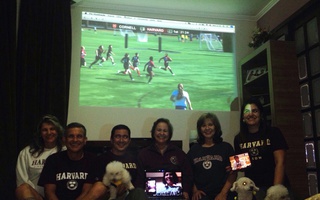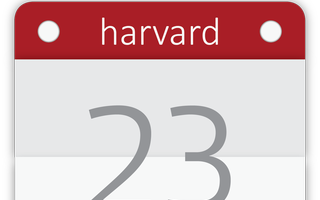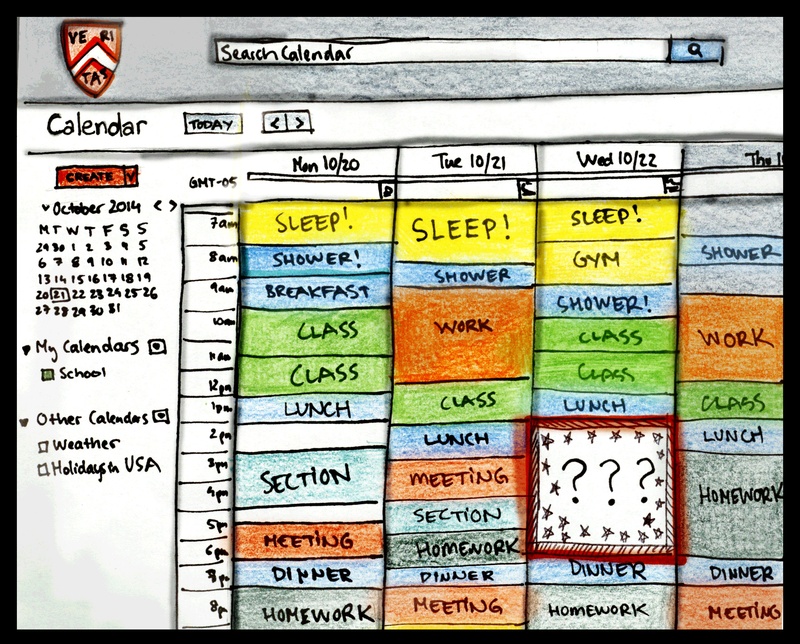Sometimes when I look at mine and my friend’s Google Calendars, I wonder if what I am seeing is real. From 9 a.m. to 3 p.m., there are blocks for showering and eating both in blue, a few classes in green, maybe a nap in yellow. From three onward, the fun begins: there are meetings for extracurricular activities in red, a space for working out in yellow, a time for dinner with a friend in red, and a few hours of homework in green. Most days have little to no white space in them. There are even days when I have scheduled my sleep in a bright yellow box, a sign that I possibly do not trust myself to stop working if I do not remind myself I need to. I love my work. I love my extracurricular activities. Above all, I love my friends. And yet, I still ask myself, “Why do I make myself so ridiculously busy?”
Though I am not sure that I know the answer for myself, let alone my peers, I feel like our constant state of busyness relates to our pursuit of excellence. A belief that percolates through campus that it’s not enough for us to do a lot or to do what we do well. Instead, we must do a lot well. Furthermore, and maybe most importantly, I know I sometimes think I need to make it look like everything I do is effortless, as if functioning on minimal sleep, having hundreds of pages of reading, and three meetings does not overwhelm me in any way.
The moment that most captures this pressure I, and I imagine others, feel is the “catch-up” lunch with a friend. I always feel compelled to simultaneously brag and dismiss all that is packed into my schedule. My extracurricular activities aren’t that time consuming. My course work isn’t that hard or that much. I am finding a way to work out but not quite as much as I’d like. And don’t worry, I tell my friend, I am still socializing. My friend and I always seem to discuss everything we have fit into our calendars. Somehow though, the only mention of how either of us is actually doing is, “I’m doing okay, just stressed.”
Despite working myself to the brink and dismissing the difficulty of my efforts, when I consider my favorite moments at Harvard thus far, they all occurred in the random, uncommon white space on my calendar. There was the time when I stayed up until 5 a.m. eating JP Licks ice cream cake with my roommates. Another favorite was when I went to a Red Sox game on a whim, despite that I had made plans for the evening. When the Red Sox won the World Series the night before my Gov 20 midterm, I ran around the Yard screaming, “Let’s go Red Sox! Let’s go Red Sox!” I can still feel the adrenaline from that night. There were also the numerous meals in Annenberg during reading period that stretched on for hours and the random Boba Tea dates so that I could give advice to friends or they could give it to me.
These moments spurred me to work harder in my classes and allowed me to relax enough that I enjoyed my extracurricular activities and my time with others that much more. They made me feel like I was maturing here at Harvard and making the friendships that would last me a lifetime, not just challenging my intellectual, social, and time-management skills. They also just made me feel like a kid who could say, “I don’t have it all figured out, and I definitely can’t do it all.”
I still constantly need to remind myself of the importance of those moments. I find myself teetering on the edge between striving for effortless perfection, the term coined at Duke in 2003 that defines students’ feeling that they must be “smart, accomplished, fit, attractive, and popular” without appearing to try, and embracing effortful imperfection, an idea that Williams student Allegra Hyde discusses in her article “Effortful Imperfection.” Hyde states that it is important not to believe that “failure is imminent” and that we all have days when we cannot do it all. Maybe I am completely crazy for accepting less than my best and most polished at times. But if sacrificing the pursuit of perfection means I can further pursue happiness by committing extra time to my friends, my family, and my own health, I will accept that trade.
While I do not know the answers to this quandary, I have a feeling that the best way to begin accepting effortful imperfection is leaving a little more white space on my calendar and seeing where it takes me. I hope some of my peers will join me. We might find that less is actually more and that we will be a little less stressed, a little bit happier, and, ironically, a little more successful.
James Piltch ‘17 lives in Leverett House. His column appears on alternate Thursdays.
Read more in Opinion
Secular StagnationRecommended Articles
-
Faber's Most Recent 'Strange,' 'New,' and Underdeveloped“The Book of Strange New Things” raises fascinating and worthwhile questions, though its answers remain inconclusive or noncommittal.
-
Not Just the R- Word, the F-word, TooHere at Harvard, however, where so many of us are away from home for the first time, some people are taking far too much advantage of being out from their parents’ watchful eye and prying ear.
-
 Beyond The Silver Screen
Beyond The Silver Screen -
 New Concentration Was Years in the Making
New Concentration Was Years in the Making -
 Harvard Today: October 23, 2014
Harvard Today: October 23, 2014 -
What Title IX DoesWe write as alumnae who have witnessed the law school’s failure to serve survivors, and who believe that our professors’ willingness to outrightly reject an improved-but-imperfect policy perpetuates that unacceptable legacy.














